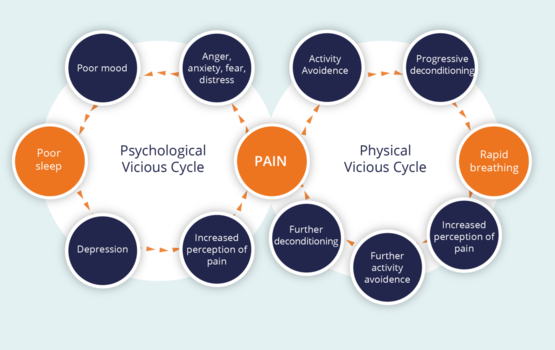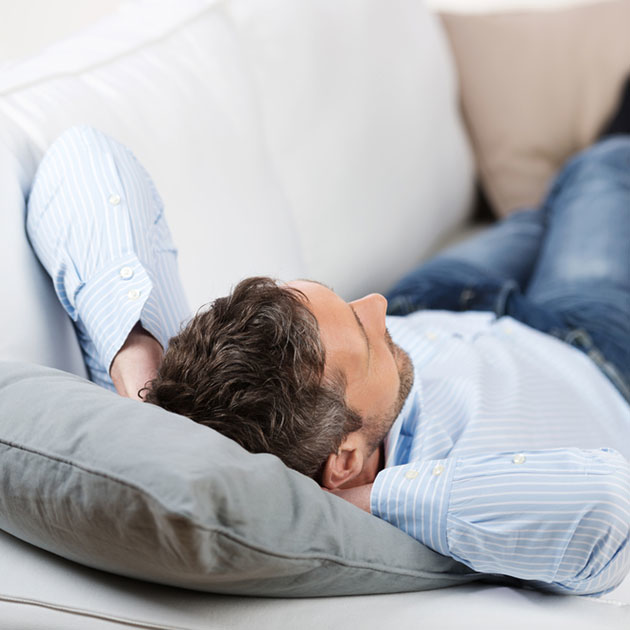Sleep
One of the most important things we do with our bodies every night is sleep.
In fact we spend about a third of our lives asleep. Pain fundamentally affects the type, depth and quality of sleep we get.
Generally pain = poor sleep. Poor sleep is one of the most common complaints made to doctors. If deprived of it for too long we say goodbye to attention, alertness, concentration, judgement and problem-solving.
Yet we still know very little about why and how we sleep. Very little of its function is to allow physical recovery. Its primary role is to allow our brains to rest and for the reorganisation and recovery of the complex nerves, cells and neurotransmitters (brain chemicals) which we use all day. It also allows us to rationalise anxiety. Dreaming is very important too. Dreams have been likened to dramatic stage plays in which we set different concerns, anxieties, loves and hates. We have internal discussions with our feelings, and compartmentalise the events of the day and how we feel about them.

At The Centre for Physical Medicine we take sleep extremely seriously. We assess sleep when patients come in as a core part of what we do. Without good sleep you cannot make a full recovery but equally pain will disturb the type and quality of your sleep. We guide you on 'sleep hygiene' and all the things you can do to maximise your sleep quality not just how long you sleep.
You should always have a good mattress and a supportive pillow, all of which we are happy to give you advice on. We have tracked down the pillow which
we think suits most people and stock it at the clinic.

